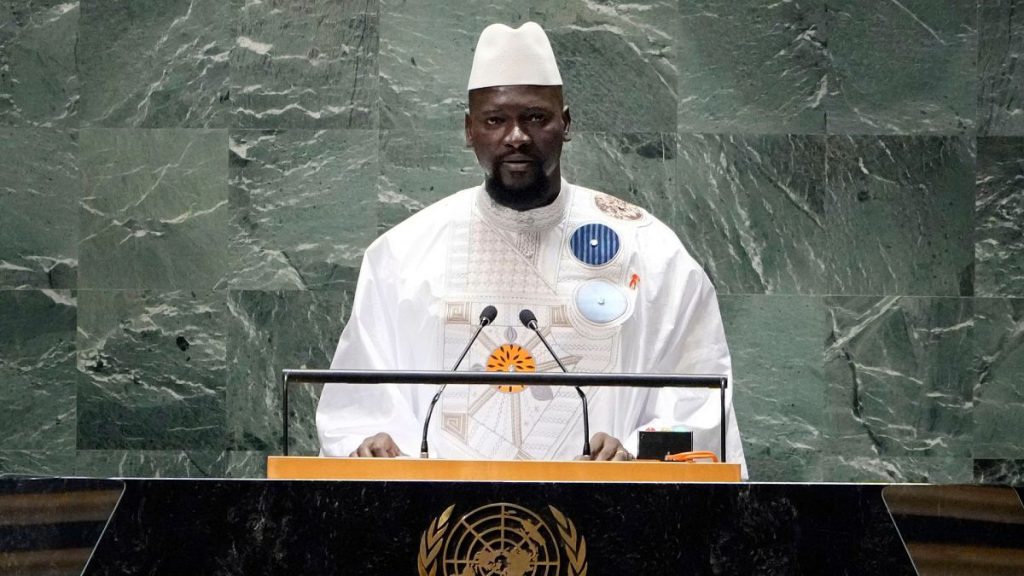Guinea, a West African nation under military rule since a 2021 coup led by Colonel Mamady Doumbouya, is currently embroiled in a political crisis sparked by the junta’s failure to initiate a promised transition to democracy. The situation escalated dramatically following a nationwide stay-at-home protest called by the Forces Vives de Guinée, a coalition of opposition groups and civil society organizations, protesting the junta’s unfulfilled commitment to begin the transition process by January 1, 2025. The protests, met with a forceful response from security forces, resulted in one reported death and hundreds of arrests, primarily of young people, further intensifying the already tense political climate. The international community, particularly the United States, has expressed deep concern over the stalled transition and the crackdown on dissent, urging the junta to establish a clear roadmap towards democratic elections and respect fundamental freedoms.
The crux of the current crisis lies in the broken promises made by the military junta. Following the 2021 coup, Colonel Doumbouya initially agreed to a timeline for returning the country to civilian rule, setting a deadline of December 31, 2024, to commence the transition process. However, this deadline passed without any concrete action. Instead, in his New Year’s address, Doumbouya announced plans for a constitutional referendum, presenting it as the first step towards a democratic transition. He failed, however, to commit to a specific date for the referendum, fueling suspicions among opposition groups and civil society organizations who view the announcement as a delaying tactic designed to prolong military rule. This perceived lack of commitment to the previously agreed-upon timeline triggered the recent wave of protests, culminating in the violent clashes between demonstrators and security forces.
The Forces Vives de Guinée, accusing the junta of holding the nation hostage, called for the stay-at-home protest as a means of expressing popular discontent with the military regime and its perceived disregard for the democratic aspirations of the Guinean people. The coalition alleges that one protester was fatally shot during the demonstrations and that hundreds more were arrested, predominantly young people. These allegations, if confirmed, represent a serious escalation of the political crisis and underscore the growing divide between the ruling junta and a significant segment of the Guinean population. The authorities, for their part, have remained silent on the reported violence and arrests, further fueling public anger and distrust.
The international community, particularly the United States, has responded with alarm to the unfolding events in Guinea. The US State Department issued a statement expressing concern over the missed deadline for initiating the democratic transition and urging the Guinean leadership to embark on a transparent and inclusive process that engages all stakeholders. The statement emphasizes the need for clear timelines and concrete steps towards holding long-overdue elections, reflecting the international community’s growing impatience with the junta’s perceived foot-dragging. The US also called for an inclusive process, hinting at the concerns regarding the junta’s previous actions, including the dissolution of over 50 political parties, a move criticized as an attempt to stifle political opposition.
Concerns about the credibility of any future elections under the current regime are widespread. The junta’s decision to dissolve numerous political parties last year, ostensibly to “clean up the political chessboard,” has been interpreted by many as a blatant attempt to suppress dissent and eliminate potential rivals. This action, coupled with increasing restrictions on independent media, including the shutdown of social networks, the suspension of information websites, and the intimidation and arrest of journalists, paints a bleak picture of the current political landscape in Guinea. The suppression of fundamental freedoms and the silencing of dissenting voices raise serious doubts about the junta’s commitment to genuine democratic reforms.
The situation in Guinea remains volatile and uncertain. The junta’s failure to honor its commitment to initiate a democratic transition, the subsequent protests, the violent crackdown on dissent, and the growing international pressure all contribute to a complex and potentially explosive political dynamic. The future of Guinea’s democracy hangs in the balance, and the international community continues to watch closely, urging the junta to engage in meaningful dialogue with opposition groups and civil society organizations and to take concrete steps towards a credible and inclusive transition to civilian rule. Failure to do so risks further instability and could potentially plunge the nation into deeper crisis.














